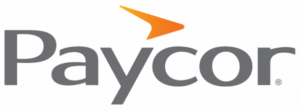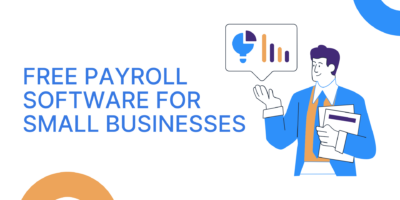
What is Variable Pay?
What is variable pay, and why does it matter? As financial expectations change more rapidly than traditional pay structures can keep pace, this model emerges as a potential solution to bridge the gap.

Finding the right HR software for small businesses means much more than choosing a tool to handle timesheets or track vacation days.
When done right, it’s a strategic decision that supports their growth.
Running a small company presents unique challenges, from limited time and resources to managing various roles simultaneously, meaning a small team often carries a significant workload.
Therefore, human resource software becomes an operational cornerstone for effectively navigating tasks like payroll processing, employee onboarding, time tracking, performance management, and more.
It removes the “heavy lifting” of manual tasks through automation and shifts resources towards innovation and development.
In this Shortlister article, we explore the main features of quality HR software for small businesses, review leading providers, and discuss what to consider for a smooth and successful implementation.
Every decision matters when time and resources are limited, as is often the case for small business owners.
Without dedicated HR departments, managing employees often falls on a handful of individuals, but sometimes only one. From hiring and onboarding to payroll and compliance, these tasks can quickly become overwhelming and distract from other business goals.
So, what can help ease the workload?
Small companies need tools that balance function, flexibility, and cost, helping them keep their operations running smoothly and stay efficient and competitive.
Let’s break this down.
| Key Consideration | Why It Matters | What to Look For |
|---|---|---|
| Core HR Functions | Simplifies key HR tasks and reduces administrative load | Payroll, time tracking, employee records, and onboarding |
| Ease of Use | Ensures adoption without a dedicated HR team | Intuitive UI, minimal setup, and self-service features |
| Automation | Saves time and minimizes human error | Automated payroll, workflows, alerts, etc. |
| Scalability | Prepares the system to grow with the business | Add-on features, integrations, flexible pricing |
| Affordability | Keeps software accessible within tight budgets | Transparent cost, no hidden fees, pay-per-user, or feature-based plans |
| Compliance | Helps small teams avoid legal pitfalls | Labor law templates, alerts, and built-in policy management |



Although most companies (80%) have turned to HR software for automation, Forbes reports that nearly 36% of HR professionals still feel underequipped.
This gap can result in lost time, missed opportunities, and inconsistent employee experiences, which are especially challenging for small employers with limited resources.
To help navigate these challenges, we review several HR tools for companies with different needs and priorities. Each offers distinct features, making it a standout choice for addressing specific small business requirements.
Best For: All-in-one HR management
Founded in 2008, BambooHR has established itself as a leading all-in-one HR solution for small to mid-sized businesses.
Between its intuitive HR tools, employee self-service features, and award-winning customer support, this provider is ideal for growing companies looking to maintain their HR efficiency without straining their budget.
Key Features:
The provider’s modern software combines automation with centralized data to eliminate most manual HR processes.
Its key features include applicant tracking, customizable onboarding, payroll integration, time-off and benefits tracking, e-signatures, document storage, and advanced reporting.
Beyond the core offerings, tools like preboarding packets, employee experience features, performance management, and more than 125 integrations add even greater flexibility and functionality.
Pricing
BambooHR does not list its pricing publicly but charges a flat monthly rate for 25 or fewer employees, while larger teams pay per employee per month.
Add-ons like payroll, benefits administration, and time tracking are available at an additional cost, with discounts for bundled services.
Strengths
Overall, this provider stands out for its automation, ease of use, and exceptional customer support. It helps small HR departments, even one-person teams, manage complex tasks efficiently and confidently.
It’s easy to use, scales with company growth, and helps businesses stay efficient at every stage of the employee lifecycle.

Best For: Global and remote workforces
Deel is the go-to solution for remote, global teams.
Navigating the complexities of managing international employees presents an additional challenge for small businesses, especially when it comes to ensuring compliance with changing payroll and labor regulations across multiple countries.
However, the provider simplifies global team management by combining an intuitive HR platform with a full-service international payroll system and built-in compliance tools.
This complete approach allows small businesses to efficiently manage domestic and international workforces without being overwhelmed by administrative complexity.
Key Features
Deel is best known for simplifying global hiring across 150+ countries and delivering comprehensive payroll and compliance support at both national and international levels. The provider’s scalable HRIS offers tools for onboarding, time-off tracking, workflow automation, performance reviews, compensation insights, and document management.
A nice addition to an already extensive solution is the robust suite of free global hiring tools, including salary insights, employee cost calculators, take-home pay estimators, benefits comparisons, and misclassification risk assessments.
Pricing
The modular pricing lets you pay only for the tools you need.
For HR teams in particular, solutions like Engage, Compensation, and Workforce Planning start between $15 and $20 per employee per month.
With the purchase and onboarding of any Deel product, companies gain access to powerful built-in tools, including global HRIS, workflow automation, reporting and analytics, Deel AI, and more.
Strengths
Deel is built for modern, remote, and global teams.
Its biggest strengths lie in the intuitive platform and built-in compliance across more than 150 countries, making it especially valuable for small businesses scaling internationally.
Best for: HR automation and flexibility
Founded initially for payroll management, Rippling has become a versatile and complete HR software for small businesses.
Rather than a one-size-fits-all approach, the provider uses a flexible, modular system, meaning clients can select only the needed features. This feature makes it more convenient and scalable as businesses grow.
From payroll and benefits to IT and compliance, Rippling combines multiple functions into a single, easy-to-use platform trusted by thousands of employers.
Key Features
Apart from its flexibility, another standout characteristic is Rippling’s automation across HR, IT, and finance. Employers can easily onboard new hires in minutes, simplify time tracking, and manage payroll and benefits—all in one place.
Additional features include automatic tax filing, synced benefit deductions, expense reporting, integration with over 600 systems, and more.
Compliance is also a focus, with hundreds of pre-built workflows that help businesses avoid penalties and reduce legal risks.
Pricing
Rippling’s pricing starts at $8 per user per month, with an additional $40 monthly base fee. Companies can also request a custom quote directly from Rippling for a tailored package based on their business needs.
Strengths
The provider’s most significant advantage is its extensive automation, handling everything from simple HR tasks and payroll to IT device setup with minimal manual input.
Its quick setup, seamless integrations, and user-friendly experience make Rippling a robust option for small businesses looking to save time and operate more efficiently.

Best for: Data-driven HR teams
Paycor is a trusted HR and payroll provider with over 30 years of experience and over 2.3 million users. Designed to reduce the complexity of workforce management, its all-in-one HCM platform helps small businesses simplify payroll, remain compliant, and easily manage employee data.
While well-rounded overall, the provider stands out most in its analytic capabilities. These help business leaders understand workforce trends, measure performance, and benchmark against competitors.
As of January 7, 2025, Paycor has been acquired by Paychex in a deal set to create one of the industry’s most comprehensive HCM portfolios.
Key Features
With a strong focus on data-driven decision-making, Paycor shines with its powerful analytics and reporting tools, complementing an extensive suite of HR tools for recruiting, onboarding, payroll, and performance management.
Its highlight features include automated workflows, customizable interview scorecards, diverse clock-in options (including biometrics), pulse surveys, and compensation planning.
Pricing
The provider offers four pricing tiers for small businesses with under 50 employees: Basic, Essential, Core, and Complete.
While past rates ranged from $99 to $299 per month plus a per-employee fee, Paycor no longer discloses this information online and now bases its pricing on a customized quote.
Strengths
It’s safe to say that Paycor shines with its data-driven approach, offering detailed insights and predictive analytics. Coupled with complete HR solutions, best-in-class implementation, and ongoing support, it helps small HR teams tackle strategic goals without administrative overload.

Best for: Affordability and simplicity
Eddy is budget-friendly, all-in-one HR software for small businesses.
Its intuitive platform simplifies HR tasks like hiring, onboarding, managing, and paying employees without the cost or complexity of enterprise tools.
Moreover, with strong adoption rates and user satisfaction, this provider helps growing teams save time, reduce manual work, and remain compliant.
Key Features
With Eddy, small businesses can eliminate time-consuming administrative work.
Its all-in-one platform includes automated payroll processing with tax filings, digital onboarding with templated tasks and e-signatures, and an employee database that securely stores documents, certifications, and job details.
The provider also streamlines hiring by posting jobs to 25,000+ boards and managing candidates through custom pipelines and messaging tools.
Time and attendance are handled with mobile-friendly tracking, timesheet approvals, and geotagged punches, while PTO policies are customizable and fully integrated into the platform.
Pricing
Eddy’s transparent and affordable plans are a valuable advantage for small employers.
Their prices start at $4 per employee per month plus a $50 base fee; the mid-tier “Growth” plan is $8 PEPM with a $75 base fee, while payroll and hiring are available as add-ons.
Custom pricing is available for the Premium plan.
Strengths:
Eddy stands out for its affordability and simplicity. Its intuitive interface, automated features, and strong customer satisfaction make it a cost-effective solution that doesn’t sacrifice usability.
No two businesses are exactly alike, and neither are their HR needs.
A growing company with fifty employees will likely require different tools than a three-person startup just getting off the ground. Consequently, HR software for startups may focus on simple onboarding and payroll, but larger employers often require more comprehensive solutions that support long-term growth.
Even so, some key features remain valuable across the board.
A Forbes article exploring how technology can help small-business owners save time and money and reduce administrative burden finds that several key areas of HR are especially well-suited for automation:
Although choosing the right tools is a case-by-case decision, often influenced by a company’s budget, structure, and evolving priorities, meeting these functional needs forms the foundation of reliable HR software for small businesses and companies of all sizes.
The software may have all the necessary features, but its effectiveness depends on how well it fits with existing tools and day-to-day operations. This process goes beyond installing the system and calls for precise planning, cross-functional collaboration, and long-term support.
The following are some of the best practices that companies can use to ensure a seamless implementation and sustained success:
Before selecting any platform, employers should identify their current HR processes and determine where improvements are needed. A clear understanding of priorities ensures that the software meets short-term and long-term objectives.
Some HR tools focus on essentials like payroll and onboarding, while others offer broader capabilities like analytics and workforce planning. Therefore, matching features to business priorities is paramount when choosing HR software for a small business.
A well-rounded implementation should include HR, IT, and department leadership representatives. This team will oversee the process, manage timelines, ensure system alignment, and act as a bridge between departments.
Companies should take time to audit existing records, correct discrepancies, and organize data before importing it into the new system. This step prevents future errors and ensures seamless reporting.
Employers benefit from building a realistic project plan rather than rushing deployment. Scheduling it during a slower period can help reduce disruptions and smooth the transition for all teams involved.
A phased rollout, starting with one department or use case, helps manage risk and allows for feedback before broader adoption. This approach benefits smaller teams or businesses with limited technical support.
After implementation, companies should track key metrics, collect employee feedback, and revisit configuration settings as needs evolve. Regular system reviews help them maximize their investment and adapt to a changing workforce or compliance requirements.
The global HR software market is booming, projected to grow from $20.51 billion in 2024 to $44.28 billion by 2031, driven by a 10.10% compound annual growth rate.
This rapid expansion is due primarily to an increasing adoption of cloud technologies, automation in HR operations, and the overall shift toward digital solutions.
At the forefront of all this, small and medium enterprises (SMEs) represent 60.97% of the market.
Looking ahead, it’s easy to predict the growing trajectory of HR software for small businesses as these tools become more personalized, data-driven, and efficient.
The rising integration of machine learning and AI in HR will also drive this shift, particularly in areas like recruitment, employee engagement, learning and development, and predictive analytics for workforce management.
As these trends unfold, companies, especially small ones, that leverage HR software are better positioned to adapt, thrive, and future-proof their growth.
Disclosure: Some of the products featured in this blog post may come from our partners who compensate us. This might influence the selection of products we feature and their placement and presentation on the page. However, it does not impact our evaluations; our opinions are our own. The information provided in this post is for general informational purposes only.
Content Writer at Shortlister
Browse our curated list of vendors to find the best solution for your needs.
Subscribe to our newsletter for the latest trends, expert tips, and workplace insights!

What is variable pay, and why does it matter? As financial expectations change more rapidly than traditional pay structures can keep pace, this model emerges as a potential solution to bridge the gap.

Find out why biweekly payments are currently the most popular option in the US.

While the federal minimum wage sparks a debate about whether or not it needs to be increased, one thing is certain – business owners must stay up-to-date with the latest labor law changes.

Learn more about the free payroll tools small business owners can use to save hours and grow their business.
Used by most of the top employee benefits consultants in the US, Shortlister is where you can find, research and select HR and benefits vendors for your clients.
Shortlister helps you reach your ideal prospects. Claim your free account to control your message and receive employer, consultant and health plan leads.